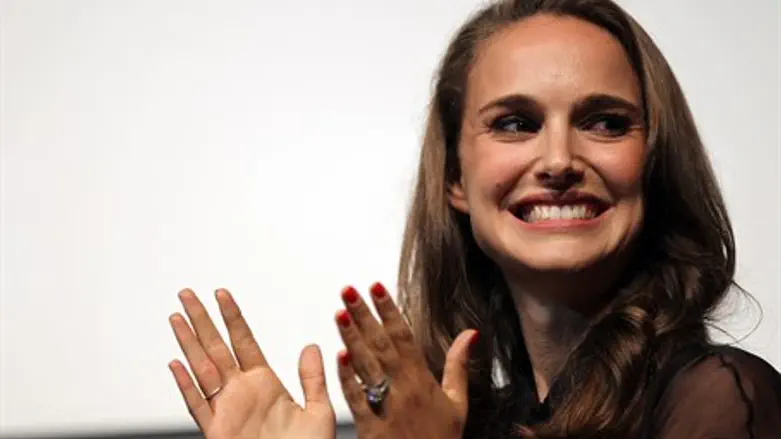
Four months after she made harsh remarks against Prime Minister Binyamin Netanyahu, Hollywood star Natalie Portman has softened her tone somewhat, in an interview with journalist Yonit Levy in Friday's Yediot Aharonot.
"I'm very much against Netanyahu. Against. I am very, very upset and disappointed that he was re-elected,” Portman told the Hollywood Reporter in May. “I find his racist comments horrific,” she added, regarding Netanyahu's election day warning to voters that Arabs were being bused to the ballots en masse.
She was more careful in the interview with Levy. “Israel is at a crossroads,” she said. “We understand that we are at a historic moment in which the state needs to understand how to be a Jewish democracy when the demography changes. I think that we, who have such a history with anti-Semitism, need to understand the dangers in racism, and understand how we treat minorities.
"I felt that Netanyahu's comments just before the election were not in the Jewish spirit of equality, mutual respect and peace, values that I would want my country to live by, and through which I would like it to present itself to the world. That is why I was disappointed,” she explained.
Portman caused a stir two weeks ago when she said that it's time for the Jewish community to shift focus away from the Holocaust, because such a focus has detracted from atrocities committed around the world.
“I think a really big question the Jewish community needs to ask itself, is how much at the forefront we put Holocaust education," Portman stated in an interview with the British Independent. "Which is, of course, an important question to remember and to respect, but not over other things."
Portman revealed that her views stemmed from her learning about the Rwandan Genocide.
"I was shocked that that [genocide] was going on while I was in school," she said. "We were learning only about the Holocaust and it was never mentioned and it was happening while I was in school."
"That is exactly the type of problem with the way it’s taught," she continued. "I think it needs to be taught, and I can’t speak for everyone because this was my personal education."